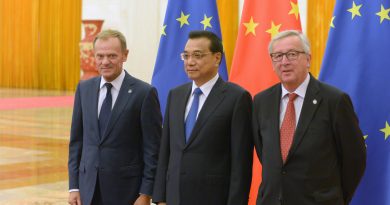Democracy is on the Ballot Around the World
Yasmin Obeidallah
Staff Writer
According to Foreign Affairs, over 4 billion people will vote for new leadership in more than 80 elections in 2024. From the United States, Russia, and Bangladesh to India, Tunisia, and El Salvador, these national elections have profound implications for the global economy, human rights, and the path to peace in an increasingly turbulent world.
Each election will be framed by local issues and the candidates’ policies, and possibly hindered by global threats to electoral integrity and democracy. The threats faced by this year’s election cycle look to test even the strongest democracies and strengthen authoritarian leanings. The spread of misinformation and manipulation through artificial intelligence and social media platforms, the suppression of opposition candidates, and unreliable elections have made the fate of democracy a paramount campaign issue all around the globe.
As the United States prepares for a likely rematch between President Joe Biden and his predecessor Donald Trump, Americans are increasingly worried about the state of democracy in the nation, according to ABC News. Only 28 percent of adults in the United States said they were satisfied with the way democracy is working in the U.S., according to a survey conducted in December 2023 by Gallup. While members of both parties say they’re worried about the future of democracy, their specific concerns about why democracy is under threat reveal the ever-apparent partisan divisions. Both presumptive nominees paint their opponents as a danger to democracy and claim this presidential contest as a “test for the survival of democracy,” according to ABC News. Democrats are concerned about what a second term for Trump would mean for the state of democracy, a fear likely heightened by the January 6 insurrection of the Capitol. Most Republicans say Biden is not fit to be president, due to his old age and alleged corruption. They too, are concerned with what a second term for Biden would mean for democracy and election integrity. Regardless of whether Biden or Trump is declared the winner of the presidential race, which The Associated Press calls the “greatest global wildcard” of this election cycle, it will be consequential to the future of this nation.
In neighboring Mexico, a presidential contest is set to take place in June. For the first time in Mexican history, the people will be electing a woman to lead their nation. Claudia Sheinbaum, the Morena party candidate hand-picked by President Andrés Manuel López Obrador, will face Xóchitl Gálvez, a former senator who is heading a coalition of opposition parties, says Foreign Policy. Until recently, Sheinbaum was the mayor of Mexico City and saw a decrease in murder rates in the capital city. Gálvez is the leader of the Broad Front for Mexico and holds 24 percent of the people’s intended vote. The winner will govern a country with rampant gun violence related to its pervasive drug cartels.
In Vladamir Putin’s Russia, which Foreign Policy says is “barely pretending its elections are real,” the authoritarian leader made his candidacy for a fifth term official in December 2023. Putin’s approval rating remains high at 85 percent as of November 2022. Nearly two years after Russia’s full-scale invasion of Ukraine in February 2022, the Russian economy has endured sanctions by Western states “surprisingly well.” This year, Putin plans to extend the presidential contest to the Russian-occupied territories of Ukraine. He has virtually no opponents in the election as opposition leader Alexei Navalny, like Putin’s other dissidents, remains behind bars. Elections are not expected to be free or fair and will secure Putin’s iron fist on the country’s political system.
In Tunisia, the country’s presidential election will be the first since President Kais Saied transformed the government into a supra-presidential system with nearly unchecked executive authority, says Foreign Policy. India, the world’s largest democratic nation, is also expected to hold elections in 2024. Prime Minister Narendra Modi and his right-wing Hindu nationalist party are seeking reelection. While many critics say Modi has weakened India’s democratic institutions and suppressed free speech and press, he remains widely popular. Both El Salvador and Bangladesh have reelected less-than-democratic leaders in 2024. El Salvador President Nayib Bukele has been praised for his crackdown on crime, yet foreign governments have criticized his repression of civil rights to do so. According to The Associated Press, Bangladesh has reelected Prime Minister Sheikh Hasina in elections that the U.S. and United Kingdom say were not free and fair. Democracy goes beyond holding elections. Ultimately, it is about the rule of law of the country. As the world endures what The Council on Foreign Relations calls a “democracy recession”, where democratic societies have been weakening and authoritarian societies have been on the rise, it is essential to ensure the survival of democratic ideals.

